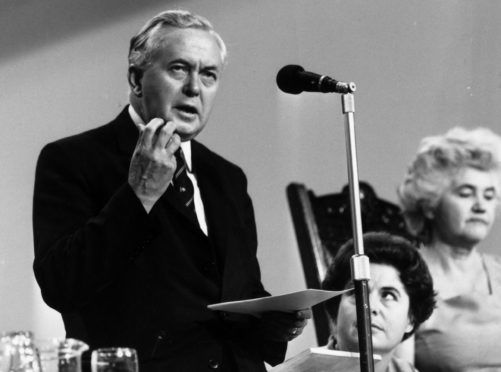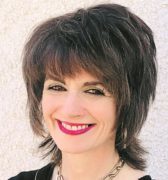Hearing about the egalitarianism of the Open University at a conference on life-long learning last week, the classics teacher of my all-girls convent school sprang to mind.
She was an anachronism even then, the only teacher in the school still sporting a black academic gown. Her thin grey hair was permanently scraped back into a bun from which only the odd wisp of unruly hair dared escape.
University applications were her responsibility and so, at the tender age of 15, I stood before her to discuss studying English. She looked me up and down, just a hint of disdain breaking through her permanently impassive expression. “You may have redeemed yourself by now,” she said, ever so quietly, “but I have always thought that there is something suspect about a girl who has not studied Latin.”
I will never forget the humiliation of that moment, the burning but silent indignation at her cruel dismissal. Or the temptation to give up and not apply. But I learned an important lesson: education is a tool of power and control, with the potential to open doors and slam them, to incarcerate or liberate. Years later, working as a teacher before becoming a journalist, I understood the importance of the confidence switch in the brain, the one that when you flick it, allows a child to break free of limitations, or confines them to the predetermined place they think is allotted to them. As an English teacher, I taught Shakespeare and Keats and Burns. But I hope that I also taught dreams and self-belief and tenacity.
Recent statistics from the Scottish Funding Council show that Scotland is increasingly attracting students from the 20% most deprived areas in our communities. The Open University, currently celebrating 50 years of its existence, has played a vital role in equalising educational opportunity. In 1963, Prime Minister Harold Wilson was ridiculed when he announced the development of “a university of the air”, a second chance for those who had missed out on higher education. Your existing qualifications didn’t matter and nor did your occupation, your social class or any physical disabilities. All that mattered was an ambition – and a determination to achieve it.
It was a revolutionary concept, one that sought to dismantle the existing power structures of education. “We are disrupters, occasional troublemakers, game changers,” the OU proudly proclaim in 2019, “the fuel for imagination… making the impossible, possible.” Those structures still need dismantled. In Britain, 88% of us attend state schools. Yet Government figures show that 74% of judges attended private school, along with 32% of MPs, 61% of top doctors, and 51% of leading print journalists. The most powerful voices of society – law, government and media – have a predominantly Oxbridge accent.
The open university would never have come to being had it not been for the remarkable, Jenny Lee. The daughter of a coalman, Lee became a Labour MP at the age of 24 in 1929, when women were not allowed to vote until they were 30. Married to Aneurin Bevan, she worked tirelessly to make the vision of a “university of the air” a reality, declaring that only the highest standards of educational provision were good enough for the OU. She was right. Second best is not good enough for a sector that has to challenge the dominance of Britain’s private school elite. Boris for PM? Oh please.
In many years of interviewing, I have met lots of rich, successful or famous people. Certain threads seemed to weave through the tapestries of their lives. Successful people have tenacity. Famous people often have charm and luck. But rich people? They have a subtle sense of entitlement that isn’t always appealing but which gives them one of life’s key assets: confidence. The confidence to expect certain things, to exploit their opportunities, to believe in their ability to deliver their dreams. They achieve success because they expect to.
Last week, the Director of the International Monetary Fund, Christine Lagarde, announced a change of direction in international fiscal policy. Once criticised for advocating austerity measures for poor nations, the IMF now recommends that spending on education and health is protected to combat inequality. Reducing inequality, Lagarde says, leads to economic growth. In Britain, that equality is certainly needed. Compare the statistics of the predominantly white, male, privately educated elite with the statistics for university professors in Britain. Out of roughly 19,000 professors, only around 5,000 are women. Only 90 are black men. And only 25 are black women.
Nelson Mandela said education was the most powerful tool you could use to change the world. That’s true for countries but also for individuals. So happy birthday Open University, and thanks for putting 20%of your content free on-line. If you are reading this and wondering if you make the grade, you probably can. Don’t have qualifications? Didn’t go to a posh school? Don’t know Latin or French or Physics? Who cares. Education is for all of us, not just some of us. Turn the handle – the door is open.
Catherine Deveney is an award-winning investigative journalist, novelist and television presenter











